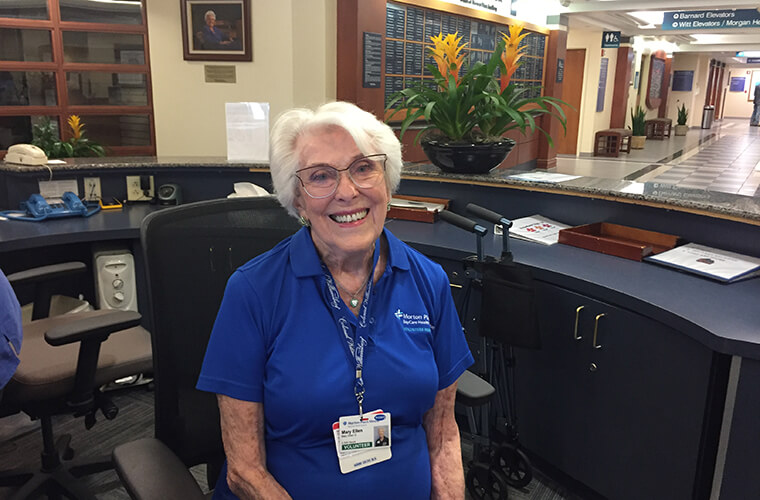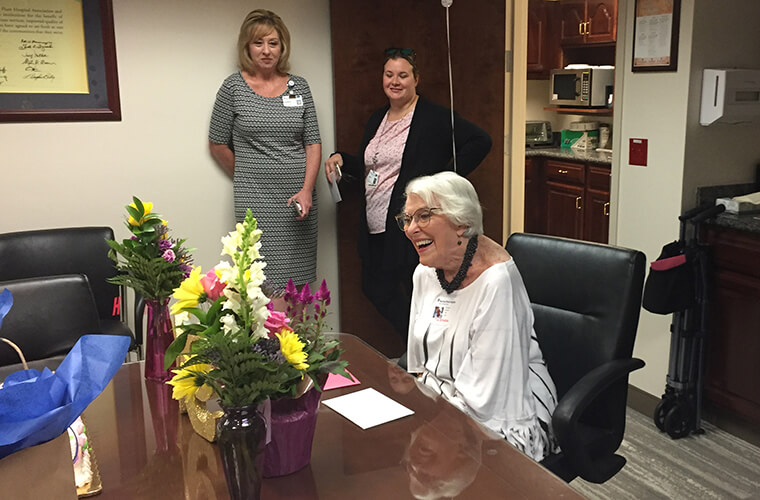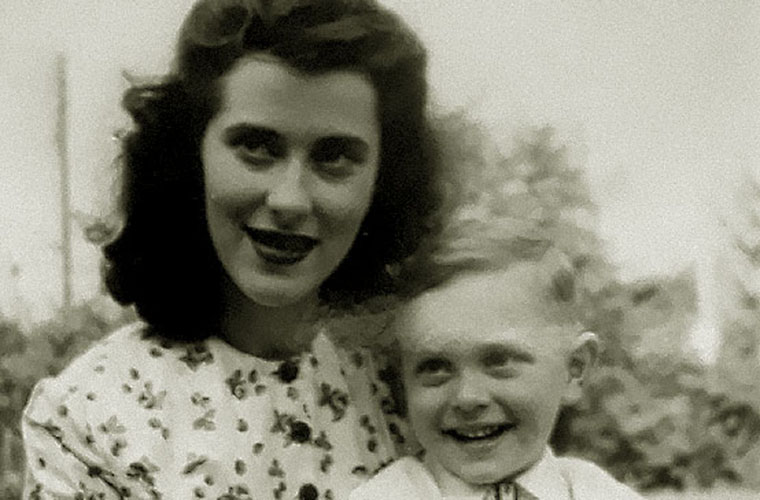She Survived Great Depression, Polio Epidemic, Two World Wars – Now COVID-19
Mary Ellen Owen has seen a lot of things in the nearly 100 years of her wondrous life, but nothing like this.
A volunteer at Morton Plant Hospital for 20 years, Owen was born in 1920, two years after the Spanish Flu rocked the world, but in plenty of time to experience the horrors of the Great Depression and two world wars, plus the gripping fear of the polio epidemic.
The Spanish Flu, thought to have infected one-third of the world’s population, left an impression that burned in Mary Ellen’s family for years.
“My father was a major in the Red Cross then, and I remember him talking about it when I was little,’’ Owen said. “There were no medicines, no vaccines, nothing anyone could do. It was a helpless feeling, he said. You either survived or you didn’t. It was terrible.
“But what we’re going through now feels different. There’s really nothing like it."
Owen spoke from the confines of her Belleair Bluffs condo, in her fourth week of sheltering in place during our present-day coronavirus calamity.
Ordinarily on a Tuesday like this, she would be at the front desk of the East Entrance at Morton Plant Hospital, greeting visitors with a bright smile and reassuringly directing patients to admissions. Some might linger to chat.
Instead, with volunteer services suspended at all BayCare hospitals, she has time on her hands. Time to think about what was, and what’s happening in our world today.
Listening to her recall the challenges of the past 100 years felt like a year of history lessons packed into an hourlong conversation, though a professor could only hope to be so captivating.
The worst time, in her view, was the Great Depression. She remembers it vividly, though she would have been in her pre-teens then. Her family had just moved to Monroe, N.C. in 1931, her father a minister in a large Methodist church.
Her mother canned peaches and preserves and sewed clothing for the family. Her father bought seeds for a farmer to grow vegetables, and they shared the crops. She was never hungry but saw plenty of people who were.
“You’d see men standing in long lines for hours waiting for a bowl of soup or maybe an apple,’’ she said. “Seldom a day went by that someone didn’t knock on our back door asking for food, and mother would fix them breakfast. Houses were marked where people knew they could get food.’’
It still pains her to talk about the time she saw tears streaming down her father’s face after two leading members of his congregation – both presidents of failed banks – took their lives.
But, somehow, life went on.
In adulthood, she came face to face with fear for the first time when the polio epidemic hit hard in the 1940s. Married then and with a young son, Mary Ellen was visiting her in-laws in Clarksville, Va., one summer when the disease was especially ravaging. She had been living with her parents in North Carolina after her husband, Dick, volunteered for the navy, but she was afraid to return.
“I don’t know why, but North Carolina was struck hard,’’ she said. “Young children were most susceptible to the disease, and at the time Rick was 2, so I stayed in Virginia that whole summer.’’
You’d think a world war would rank high for inciting fear and uncertainty, but Mary Ellen didn’t see it that way.
All the young men in her family volunteered for service during World War II. Her husband, a gunnery officer on a destroyer, was wounded at Iwo Jima and was in Nagasaki within two weeks of the atomic bombing. She had cousins in the army and air force.
“You didn’t consider not being in,’’ she said. “Everyone was optimistic; there was a wonderful response. The country pulled together, and everyone did what they could. The attitude was ‘We’re going to do this.’’’
Owen’s family is stepping up for service this time around, too.
Her granddaughter Lori is on the front lines, a mobile nurse specializing in pediatric intensive care. She had just started a three-month contract at a children’s hospital in Las Vegas when COVID-19 altered life as we know it. Recently, she was transferred to an adult hospital to fill a void after four nurses tested positive. One is in intensive care.
It’s another time, another challenge. We’re all affected in some way. What advice does Owen have?
“It’s not easy. I don’t think life was meant to be easy,’’ she said. “Try to be strong, to be grateful for what we do have. God promised us he will go through hard times with us.’’
For all that she’s seen - fear and famine, invisible enemies and human combatants - there’s been nothing quite like the coronavirus crisis.
She expects the worry will wane. And she hopes to return to her post at Morton Plant, where she relishes her contact with people and the chance to make a contribution.
“Our world is different now,’’ she said ‘’(But) you only fear so much before hope starts to glimmer. We aren’t there yet. We need hope.’’




